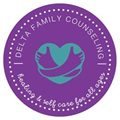 We will all experience grief and loss.
We will all experience grief and loss.
This is what it means to experience life and love.
Bereavement is the process of grieving and letting go of a loved one who has died.
It can also accompany non-death-related losses, such as the end of a close relationship, the loss of a long time job, or a decline in health.
Grief is a normal, healthy response to a loss.
Grief can be experienced as a mental, physical, emotional, or social reaction. We all grieve differently, and the way we process grief depends on our unique relationship with the person we lost, the situation surrounding the loss, our cultural and spiritual beliefs, and our previous experiences with loss.
There’s no one right way to grieve.
Mourning is the process of adapting to our loss.
Bereavement is often used to refer to the period of grief and mourning, as we try to re organize our lives without our loved one.
Suffering and loss can feel overwhelming, and recovering from grief is one of the hardest things we’ll do in life.
While we never truly “get over” the loss of a loved one…
…most of the time, we’re able to heal and move forward into our “new normal.”
Sometimes, however, grief may be so complicated and profound that additional support is needed.
If your loss was sudden, violent or traumatic, or you have experienced multiple losses in a short period of time, you may want to seek grief counseling.
Are you experiencing suicidal thoughts, deepening depression, inability to eat or sleep, panic attacks, difficulty with activities of daily living, persistent, intrusive feelings of guilt, or do you feel that you should have died, too?
Are others expressing concern for you? Are you self-medicating with alcohol or drugs? Do you feel isolated and alone?
Reach out for the help you need.
If you feel you’re not coping with your loss, it is important to seek help.
Although it may seem easier to bury your pain than to face it, unresolved grief can cause long-term emotional and physical problems.
Grief work refers to the painfully exhausting process of readjusting to a world without your loved one, forming new relationships, and finding a place to keep your loved one’s memory as you move forward into a life without the person who died.
One of the most important factors in recovering from grief is support.
As time passes, you may find your friends and family get tired of hearing you constantly talk about your loss or seeing you “not yourself.”
Yet social support and being able to express your feelings are important factors in healing from grief.
We can provide the support you need. In a caring, safe, and nonjudgmental space, you can process your loss and express any feelings you may not want to share with family or friends.
We’ll help you identify and express your feelings about the loss, separate emotionally from the deceased, identify coping problems, and help you find effective ways to cope.
Having someone validate our feelings with understanding and support makes it easier to heal and move forward.
We have specialized grief counselors waiting to help you. Call us (239) 540-1155.


 We will all experience grief and loss.
We will all experience grief and loss.